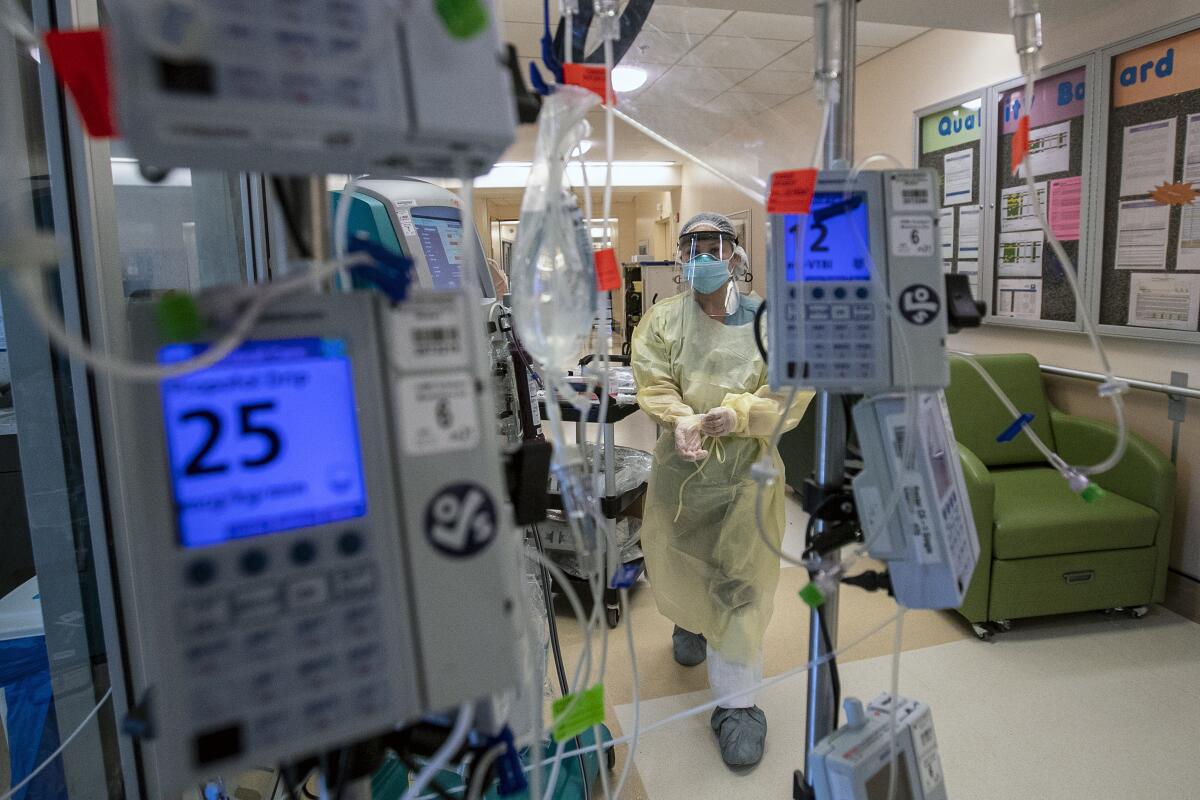Letters to the Editor: Our medical system was demoralizing healthcare workers long before the pandemic

- Share via
To the editor: Dr. Victor J. Dzau’s op-ed article is excellent, but it begs for more attention to the root causes of burnout among healthcare professionals. (“We need a national strategy to help health workers recover from the stress of the pandemic,” Opinion, March 5)
Dzau writes, “We need a national strategy, not only to help healthcare workers recover from the pandemic, but also to mitigate preexisting drivers of burnout.” Many of us are convinced that those “preexisting drivers of burnout” are the long-standing structural, systemic problems embedded in our unnecessarily expensive and too-often harmful U.S. healthcare system.
For any strategy to successfully address burnout, it must include recognition and repair of those structural, systemic problems, which include the following: the toxic priority of profit before health; the demands of information and administrative overload that are relentless, intolerable and function-impairing; and the inadequate attention to prevention, social disparities, racism and injustice.
We can make things better.
Robert S. Vinetz, M.D., Los Angeles
..
To the editor: Dzau suggests we need to track the well-being of clinicians because burnout has increased due to the pandemic.
However, what we need is not to track burnout — which has already been well documented — but to fix our healthcare system, which is the underlying cause of this burnout. We need to replace our chaotic patchwork of public and private for-profit insurers with a single-payer system that covers everyone with comprehensive benefits.
We also need to use a more functional electronic medical record. That will dramatically reduce administrative and digital hassles for doctors and decrease burnout.
Nancy Greep, Los Angeles
More to Read
A cure for the common opinion
Get thought-provoking perspectives with our weekly newsletter.
You may occasionally receive promotional content from the Los Angeles Times.









